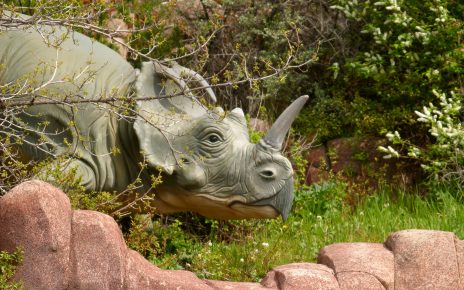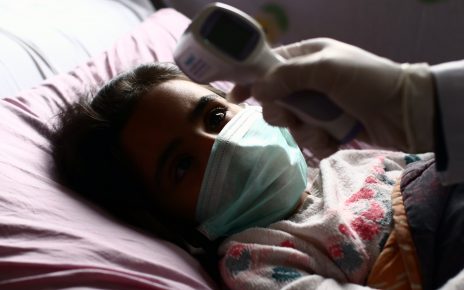I was listening to the comforting background hum of the old refrigerator in my rented apartment. The noise stopped suddenly; the only sound left was the tinnitus ringing in my ears. From my chair, I looked out through the sliding glass door. Wind and rain animated the bright-yellow flannel bushes on the hillside. California had just had the driest February on record, and the flowered branches seemed to be stretching like fingers to catch the life-giving rainwater.
I had been self-quarantined at home for a week. After returning from a climate change workshop in Washington, D.C., I came down with a low-grade fever and a dry, hacking cough. On day five I was tested for the novel coronavirus and other microbes. After several anxious days I learned that I had a different infection—a serious influenza strain—and as I write this, I am slowly recovering.
While sequestered, I thought a lot about how complex systems respond to big perturbations. That is part of my job. As a climate scientist, I study the atmospheric and oceanic responses to things such as massive volcanic eruptions, large changes in the sun’s energy output and a doubling of atmospheric carbon dioxide levels. The novel coronavirus is a major shock to complex human systems of governance. Here are a few personal thoughts on lessons learned from the current situation.
LESSON 1: Scientific ignorance can be fatal—particularly if it starts with the U.S. president and trickles down from there. It was scientifically incorrect for Donald Trump to dismiss the coronavirus as no worse than the seasonal flu, as he did on February 26. It was incorrect to advise U.S. citizens to engage in business as usual, which he did as late as March 10. It was incorrect to imply, as he did in a press briefing on March 19, that the malaria drugs hydroxychloroquine and chloroquine are promising remedies for COVID-19—something that has not been verified. Dissemination of such inaccurate information helped to spread the novel coronavirus in America faster by delaying the adoption of social distancing. Ignorance served as a potent disease vector.
LESSON 2: A leader tells hard truths in times of crisis, not falsehoods such as “Anybody that wants a test can get a test,” as Trump said on March 6 at the Centers for Disease Control and Prevention. A leader does not assume the mantle of expertise in areas where he or she has none. A leader accepts responsibility for personal and organizational failures. A leader cares more about saving lives than about winning reelection.
LESSON 3: “America first” is a singularly poor survival strategy in the middle of a global pandemic. No nation is safe from a microscopic agent that can hitch a ride on any airplane, ship, train or car. Building effective international organizations and alliances is a far better way of surviving a global health crisis than going it alone.
The phrase “an abundance of caution” has become commonplace in the past few months. People use it when explaining their decision to self-quarantine. But an abundance of caution should have been exercised at the beginning of the pandemic. Detailed plans for scientifically accurate messaging should have been ready, along with strategies for national and international coordination of response efforts.
They were not ready. The capability to test tens of thousands of citizens a day and to give hospital staffers basic safety gear should have been in place. It was not. Members of the Trump administration should have corrected the president’s misstatements on the seriousness of the coronavirus. Instead they largely remained silent. After years of belittling and neglecting science—most notably the science of climate change—Trump is suddenly discovering that science is imperative for human survival and perhaps even for his own political survival. Through science, a vaccine will be developed for the novel coronavirus. If this country invests in science now—and if we invest in the maintenance of strong global health systems—we will be better prepared for the next novel virus waiting out there.




